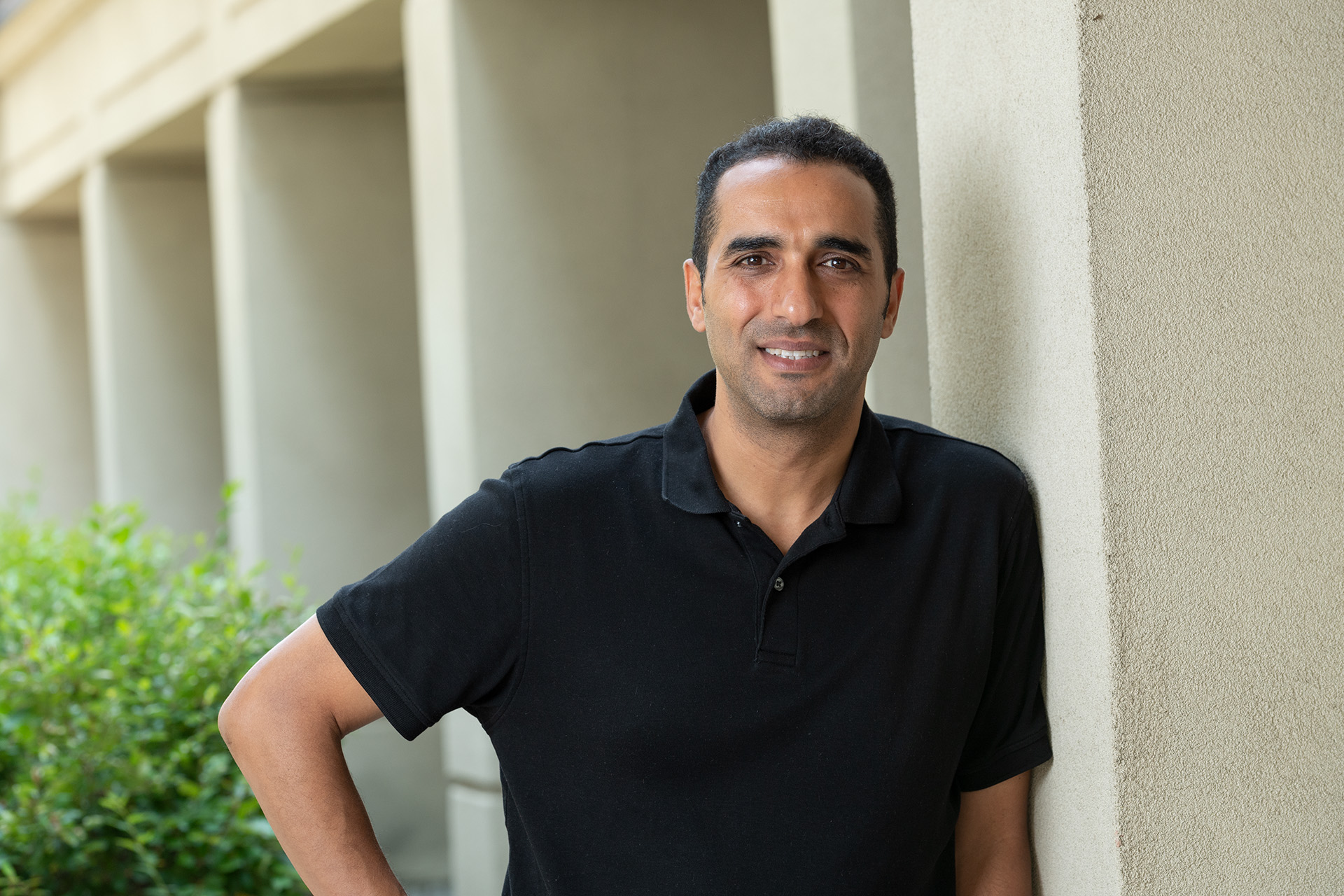
“We are one community, we learn from each other. We share ideas.”
– Ramadan Abdunabi
It was the middle of spring semester and Ramadan Abdunabi’s students were faced with a challenge, their computer lab was closed due to COVID-19.
“These problems shouldn’t be in the class,” said Abdunabi, who teaches computer information systems to undergraduate and graduate students in the College of Business.
“I don’t like my students spending time on configuring technology that’s not related to the subject that I’m teaching.”
Using the same cloud services that are becoming increasingly vital to remote work and study, Abdunabi created virtual computers so students could easily use their web browsers to operate machines with identical hardware configurations, programs and settings.
This student-first approach, which extends throughout Abdunabi’s courses, has been key to supporting his streamlined, collaborative learning environment.
And the result? His students graduated prepared to find work, even in an economy reshaped by the pandemic.

“I got things faster, I understood things more. It was all hands on.”
– Joshua Stout, BSBA, CIS Concentration, ’20
‘He was always there for support’
Instead of the last couple months of the semester being spent in a daze of troubleshooting and calls to tech support, Joshua Stout – a newly minted College of Business alumnus – and his computer information systems classmates were able to continue their coursework uninterrupted.
“Ramadan’s class was one of the easiest classes to adjust to,” said Stout. “He was always there for support.”
The class learned an entire coding language, React Native, in just eight weeks using the virtual lab and the open-source mobile framework to design native apps and build web sites. The framework made the class more convenient to student needs, Stout said.
“I got things faster, I understood things more,” he said. “It was all hands on, every time there was a class … that’s all we would focus on. We would just be doing examples after examples.”
Excited by the new concepts he was learning, Stout would experiment on his own to get a better sense of how React Native worked after completing his assignments.
As Stout’s senior year drew to a close he began looking for opportunities where he could put his skills to the test and landed an internship interview with a tech startup in Denver.
“I was like, ‘This is what I do,’” said Stout, who has since been offered a full-time job on the web development team at the growing company.
“Seeing the changes in the company while I’m there, it feels like I’m contributing to something bigger than myself,” Stout said. “React is such a fundamental thing that’s being used for web and applications, and if I had never learned this I never would have even applied for the opportunity. I feel like it was very up-to-date and current knowledge, so it really helped me get out there.”
And amid all the change of his last semester, the skills he put to use adapting have proved useful in the workplace.
“Having the online classes, it was so beneficial,” said Stout, who counts Abdunabi as one of his favorite professors and has applied his experience working remotely in the classroom to working more online as a young professional. “The transition was 1 to 1.”
Innovating and Moving Forward
The impact Abdunabi’s classes can have on his students’ lives is not lost on him, and the educator is continuously refining how he engages people in his classes.
To stay up to date with the ever-changing tech world, Abdunabi spends time over the summer researching new trends to update course material so that it can stay relevant and useful for students when they enter the job market.
The technologies Abdunabi deploys in his class have immediate benefits to his students, from interactive videos that increase retention of course material to AI-powered eBooks that deliver personalized tutoring to students. The educator has even conducted research into how CIS students learn, and brings those insights to bear through how he structures coursework.
All of this innovation combines to help students feel confident tackling complex technical topics. As they incrementally build up their skills students are able to come to class prepared to talk about the material, something that has stayed consistent throughout the transition of more online course content.
“I’ve been teaching online since 2015, so this is not new for me,” said Abdunabi. “Students are active and answering questions. I dive into more complex examples and they love it, then the assignments are easier.”
Abdunabi constantly looks for ways to make his students feel connected and supported, from weekly messages of encouragement to facilitation of peer-to-peer learning where students lean on each other to complete assignments. And the educator has taken steps to share his best practices with others at CSU and in the College of Business.
“We are one community, we learn from each other. We share ideas,” said Abdunabi, who has been meeting with other faculty members and department leaders to pass his insights, and hear about how they’ve been adapting.
How does Abdunabi feel about students coming back to his classroom, even if they’ll be spending more time in the virtual lab?
“I’m very excited, I’m not anxious about teaching in Fall 2020,” said Abdunabi,.“I think our students now are much better prepared for the new world of remote learning.”